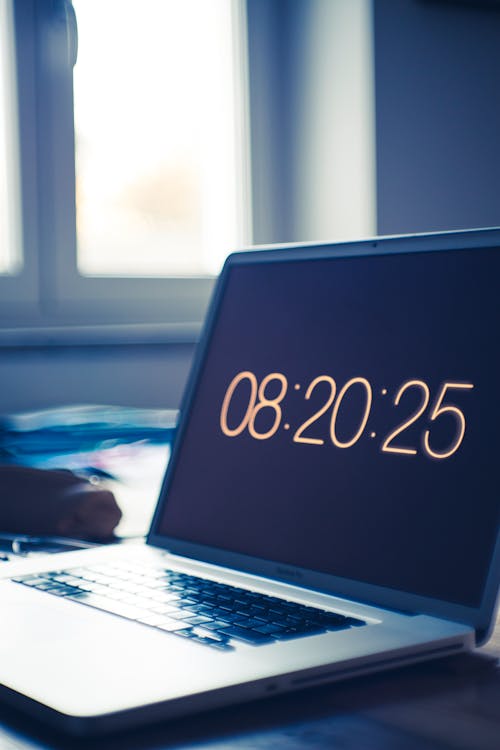Working from home can be challenging, especially when it begins to take a toll on your mental wellbeing. Whether it’s your first time working from home, or you have been doing this for a while, it’s important to take your mental health seriously and realize the adverse effects that remote work can have on you.
Breaks
There are many things to consider when it comes to taking breaks. Do you have a scheduled break time designated by your employer or your work schedule? If you don’t, what does your current break schedule look like? You need to find what works best for you. It can be difficult to strike a balance between productivity and self care. These breaks are your time for self care during the day. When we think of self care, we tend to think of it as something we do on our day off or possibly after work hours. We need to reframe that thinking because it’s important to realize we need self care during our work day as well. We need to prioritize breaks so that we can maintain our productivity. After a break, we can come back feeling refreshed and ready to hit the ground running again.
It can be helpful to set reminders for breaks. If you notice that you often ignore these reminders and keep working, try a screen lockout application or extension. Make an effort to make sure you are not disturbed during your break. Screen time should be limited during our breaks, especially if we have a job that requires a lot of screen time. Try taking a walk outside for some fresh air instead or chatting with a coworker.
Exercise, nature, and a social connection will add more value to your day than scrolling through your phone will. Being active during your break if you sit at a desk all day will help you feel energized. If you are challenged mentally more than physically at work, try to take a break somewhere quiet and meditate so that you can recharge, reset your focus, and re-energize your mind.

Beating frustrating wait times
You were on a roll and then your computer randomly decides to update. Perhaps your WiFi stops working. Maybe you have been staring at a document that is uploading for what seems like an eternity. I’ve been there. Plenty of us have. We all experience issues with technology from time to time which can make working from home very frustrating. What can we do to stop ourselves from punching a wall you ask? Try doing some breathing exercises. The more oxygen hitting your brain, the more relaxed, calm, and self-aware you’ll feel.
Consider keeping a coloring pad handy at your desk so that while you wait, you can do something relaxing. You could also use this time to get up and stretch. 15 minutes of stretching can leave you feeling at ease and give you the energy you need. If you have a pet at home, give him/her a cuddle and a bit of attention while you wait. You can use this time to refill your water bottle or make yourself a cup of tea. The simple process of making tea will relax you as well and holding a hot beverage can be very soothing.

Screen time
Working from home usually means a lot more screen time. But when you’re working, you might not have a chance to check your phone and respond to personal messages. If you don’t, the temptation to finish work and immediately start scrolling through your phone could beat you. Set a timer for ten minutes of phone use after work hours, then do an activity that doesn’t involve a screen. Give your eyes a break and try finding a new hobby. Bonus points if it’s a new exercise class or a form of art since they will boost your mental health and improve your mood.

Schedule it
Working from home often means there is a lot less structure to your work day. Try using the pomodoro technique to increase your productivity, break up your work load, and incorporate breaks into your day. The pomodoro technique includes timers for every half hour. It allows you enter in tasks that you want to accomplish in that time frame. Planning what you need to get done throughout the day will help you stay on track to meet your goals. Emails can be distracting; set a time to check emails to avoid the interruptions of responding to emails throughout the day.
Work space
It’s important when working from home to be mindful of the work space you choose. Find what works best for you. As tempting as it may be to take your laptop to your bed and work from there, avoid it. Working or doing anything other than sleeping for too long on your bed can affect your sleep at night. If you have an in-home office or a desk to work from, make sure you get some natural sunlight. If possible, set up your desk by a window so you can open it to have some fresh air. Buy natural plants for your desk as these not only look nice, but they release oxygen which can help your mental health.
Figure out what relaxes you and use that. Try playing classical music in the background. Put pictures of loved ones or inspirational quotes on your desk. Make it your own space and add things to your desk that make you happy. Use candles or essential oil diffusers in your workspace since aromatherapy may help boost your mood and relieve stress. Keep your comfort and physical health in mind when selecting a chair and choose one that will help your posture. If you choose to work from a public place like a cafe, be mindful the space has everything you need.

Check your energy levels
If you have a job that has some flexibility with the hours you work, figure out when your energy levels are the highest. Is it in the morning when you first wake up? Is it after you have had a cup of coffee or done your morning meditation? Think about your morning routine and your productivity levels in the morning compared to the evening for example. If you are a night owl and get more work done at the end of the day, adjust your work schedule to match your energy levels. Whether or not you have the flexibility to work in the evening or not, you should also attempt to strike a balance by knowing which activities drain you and which ones recharge you-then plan accordingly.
Look at the list of tasks you have for the day and plan out which ones you should tackle when you have the most energy. Once you know which tasks will take the most out of you, it is easy to plan a break after that particular task or follow it up with a task that is easy or that you enjoy. It’s also important to realize that our minds tend to have a daily limit to creativity and decision making. This means you should plan out your day, whenever possible, to prioritize the tasks that require you to make decisions or use your creativity in the beginning of your work day. Checking your energy levels and planning around them will make you more productive and keep your mental health in check as well.

Drinking water
It can be easy to get so wrapped up in our work that we forget something as simple as drinking water. Keep a water bottle visible at your desk and refill it when it gets empty. Drinking enough water helps us stay hydrated; this is especially important because dehydration is the number one cause of stress in the body. Water can help reduce the negative psychological and physiological impacts of stress. Since your brain is mostly water, drinking it helps to balance your mood and emotions. Our blood is made of 90% water, and the blood delivers oxygen to our brain. By drinking more water, more oxygen hits our brain and we can function better. Most people know the physical health benefits of drinking water, but drinking water can be great for your mental health too. Convinced yet on drinking more water?
Making your mental health a priority and setting habits that can set you up for a healthy work-life balance will benefit you in the long run. If you take a bit of time to set these goals and make these changes, you can be more productive without it taking a toll on your mental well-being. If you still find yourself overwhelmed and are struggling with the transition, talk to a therapist. You can find a qualified mental health professional at www.globalcitizentherapy.com,




